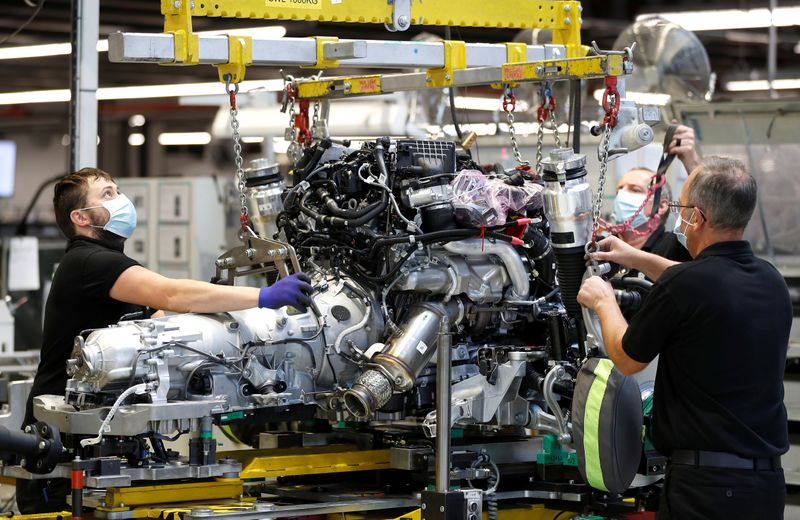By Andy Bruce
LONDON (Reuters) - More than half of small British manufacturers feel under pressure to pay staff more because of labour shortages caused by the COVID-19 pandemic and Brexit, a survey showed on Thursday.
The report from consultancies South West Manufacturing Advisory Services (SWMAS) and the Manufacturing Growth Programme (MGP) showed most small- and medium-sized manufacturers had lost skilled staff during the pandemic.
With only a small minority able to find replacement workers, 60% of manufacturers said they either had or would have to increase pay to attract staff.
The Bank of England has been watching pay pressures carefully ahead of Thursday's interest rate decision - a task made more difficult by distortions to official pay data caused by the pandemic.
While wages have risen sharply in some industries like haulage, construction and manufacturing, most workers have not seen significant increases in pay.
Around 40% of respondents in Thursday's survey cited a shortage of European Union workers after Brexit as a key driver behind the scarcity of labour.
British Prime Minister Boris Johnson has said Brexit will help to build a high growth, high pay economy, aided by new restrictions on immigration.
But economists have warned that pay increases caused by labour shortages will only hurt the competitiveness of British companies - unless a way can be found to raise productivity, a goal that has proved elusive over the last decade.
There were already signs that the cost of supply chain problems and labour shortages had started to hurt profit margins, even though companies expect future sales to improve, Thursday's survey showed.
The ongoing supply chain challenges meant many businesses have had to reallocate and add additional resources to address these issues, said Nick Golding, managing director at SWMAS.

"In fact, respondents are currently having to commit an average of two full-time employees to manage suppliers and customers, a number that often equates to between 5-10% of a SME manufacturer's workforce," he said.
Still, 64% of respondents said they expected to expand over the next six months and 52% said they would invest more in equipment.